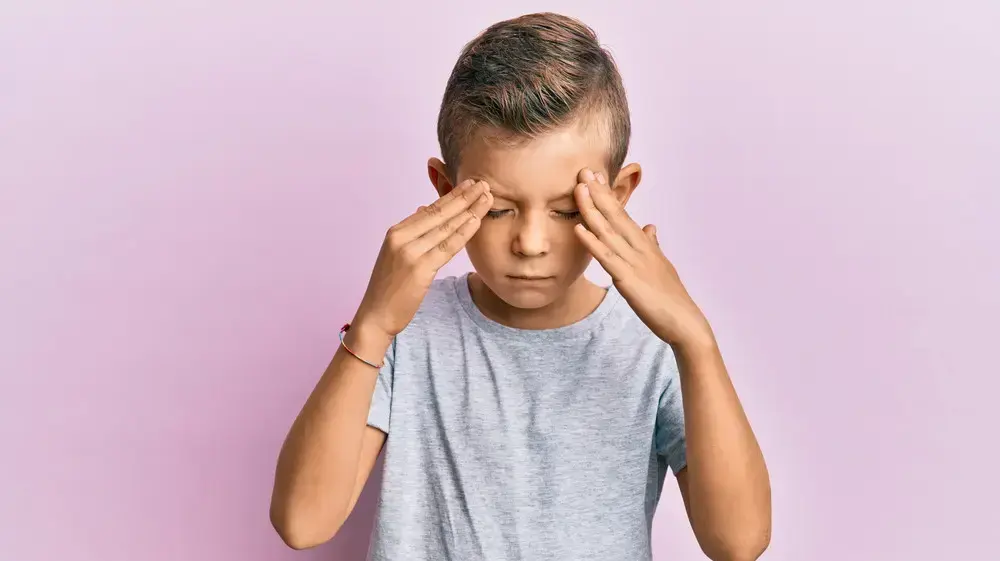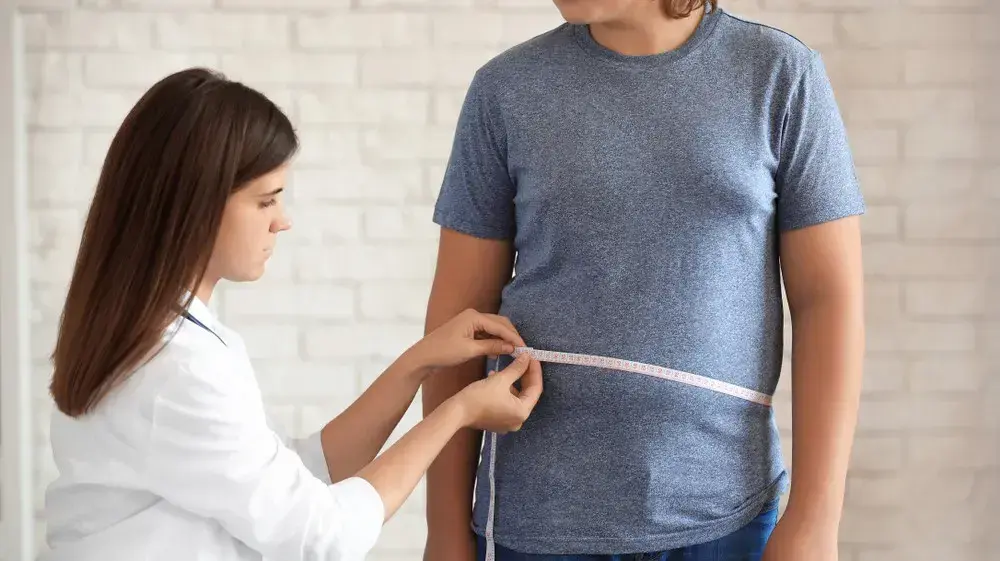When should headaches in children worry us?
Children often complain of headaches, especially when the load in studies increases, and in most cases it is a phenomenon that will pass by itself.
However, there are some warning signs to be aware of
Dr. Jacob Ganizi, guest article
09/09/2022
Friday, 09 September 2022, 08:12
Share on Facebook
Share on WhatsApp
Share on Twitter
Share by email
Share in general
Comments
Comments
The most significant trigger for headaches in children is stress around learning.
A child suffers from a headache (Photo: ShutterStock)
Headaches in children and adolescents are a common phenomenon that has many causes.
In most cases there is no cause for concern, but it is important to note when one should suspect that the headache is due to a significant medical problem, and when it is a pain that is not dangerous.
Headaches, including migraine and tension headaches, may be caused by environmental effects as a result of an unhealthy lifestyle: such as lack of sleep, poor nutrition, lack of exercise and perhaps even prolonged time spent in front of screens.
In children, the most significant trigger that causes headaches is stress around learning.
With the start of the school year, many students are under stress, and we see around the world during September a significant increase of up to threefold in reports of headaches in children.
When should you go to the doctor?
When the headache does not interfere with the continuation of the function and does not get worse, then there is no reason to worry.
But when the pain is significant, interferes with function and gets worse - you should see a doctor.
In addition, it is recommended to consult a doctor if symptoms appear such as a headache which is very strong and different from anything known, a headache accompanied by vomiting and disturbances in normal vision.
More in Walla!
Children can also have a stroke.
How do you recognize him?
To the full article
In general, when it comes to a relatively mild and prolonged headache but it does not impair function, it is less of a concern than a new and severe headache that is accompanied by one of these symptoms.
At the same time, when it comes to a recurring and prolonged headache that bothers or interferes with the child's quality of life (even if it is not disabling), it is recommended to contact a neurologist who will help diagnose whether this is a case that requires medical intervention, what are the risk factors in the environment and whether it is a primary migraine syndrome.
How is migraine diagnosed in children?
Migraine is the most common type of primary headache in children.
Migraine symptoms may appear from a young age but are mostly common from adolescence.
Diagnosis of migraine is clinical and is based on classic complaints, when a neurological examination is normal and after the exclusion of other causes of attack headaches.
Migraine is characterized by sharp headache attacks.
This is not a "normal" headache, but a moderate-severe severe headache, which may last for hours, sometimes a day or more.
The pain is accompanied by a desire to lie down, nausea and vomiting and sometimes sensitivity to noise and light.
In children, it is a more challenging diagnosis than in adults, because children do not always succeed in accurately describing the symptoms they feel, and in addition, the clinical picture of children is not as typical as that of adults.
It is important to pay attention to the intelligent use of drugs to prevent pain.
A mother gives medicine to her daughter (Photo: ShutterStock)
It is recommended to go to a neurologist in cases of recurring headaches to diagnose that it is a migraine and not another cause, and thus also receive a dedicated migraine treatment.
Treatments that help to reduce aggravating factors, treatment to reduce pain and other preventive treatments.
Preventive treatment should be considered in children who often suffer from migraine headaches.
First, make sure to adhere to a daily schedule, and use pain prevention medications wisely (no more than twice a week).
Until recently, there were no good medicinal options for preventive treatment in children, compared to adults in whom new generation drugs, CGRP antagonists, began to be given.
A large international study is now underway on these drugs, and in the near future they may already be approved and available to children as well.
Dr. Yaakov Ganizi is an expert in pediatric neurology and director of the pediatric unit at Bnei Zion Medical Center, Haifa
health
parenthood
child's health
Tags
Headache
migraine
Children














